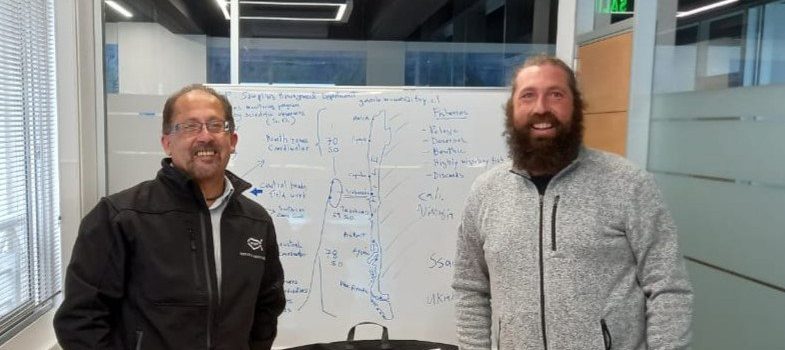United States’s Scientific observer visited IFOP
May 5th, 2022Steve Samana, fishing observer trained by United States’s National Oceanic and Atmospheric Administration (NOAA) visited IFOP, in order to exchange experiences and above all to get to know Fisheries Development Institute (IFOP) sampling management department’s work. He was invited to IFOP by Luis Cocas, a professional in charge of Undersecretary of Fisheries and Aquaculture (SSPA) scientific observer and discard program .
Steve, who is currently part of the US West Coast Groundfish Watching Program in collaboration with Pacific States Marine Fisheries Commission (PSMFC) and National Marine Fisheries Service (NMFS), collects on board vessels that fish or incidentally catch groundfish, all the information concerning them, as well as their discard rates. Data that is then consolidated through a single data management system in standardized formats that allow fisheries managers, scientists and partner agencies to monitor fishery resources more efficiently.
At IFOP’s headquarters, they were received by Gonzalo Muñoz, one of DGM general coordinators in charge of the northern part of the country, who explained to Steve the organization of the department, his role and that of the scientific observers, including their training and the link with institution’s quality management system, in addition to all the related research programs, including the two monitoring of discards and catch of bycatch in demersal and pelagic fisheries. Meanwhile, Luis, on his part, informed him about the importance and scientific observers role in national fishing regulations and institutions.
In that meeting, Steve stated that he was very impressed by coverage level , department’s composition infrastructure and support given to his colleagues in the country, especially stability and job security that IFOP offers its scientific observers, since In the United States, he and his NOAA-trained colleagues, many of them biologists, are self-employed, usually hired for periods defined by the fisheries observer program in which they participate.
